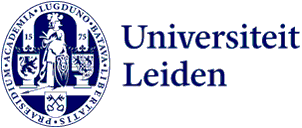
Include local communities in policymaking
Forest degradation has limited the Orang Rimba's access to forest resources. As a result, they've had to make significant cultural modifications and adaptations. Ekoningtyas Margu Wardani explains in her PhD dissertation these transformation processes among Contemporary Indonesian Hunter-Gatherers through the lens of Food Security. Her main proposition: governmental intervention applied by the Orang Rimba should be based on their perception of food security.
According to the Food Security Atlas of Indonesia (2015) the Orang Rimba experience food insecurity. This statement undervalues the importance of traditional foods and methods of food procurement while also underestimating the obstacles created by external variables and players. Everywhere in Indonesia people face forest degradation. Especially for people who depend on the forest for their food, this has a big impact on food security. ‘Food security is a human right. That’s why I did this research’, Wardani explains, ‘I hope that some of the key points of my research will be applied in the wider context.’
The Orang Rimba
The Orang Rimba ('forest people') is a small group of around 3000 people that reside between Batanghari River and the foothills of Bukit Barisan Mountain range of Jambi and South Sumatran in Indonesia. As a hunter-gatherer, the Orang Rimba’s main sources of livelihood are hunting, fishing, gathering, and (barter) trade, with little adoption to rubber and oil palm farming. Even though they have involved in a market system, they still adopt their tradition and culture, with the forest as the foci of life.
-

An Orang Rimba women is tapping the rubber in Sako Tulang group. -

An Orang Rimba man in Pengelaworon group. -

The Orang Rimba family is going to visit the nearby market.
Anthropological approach
Wardani has a background in economics but wasn’t new to ethnographic research. The Indonesian researcher has been in contact with the Orang Rimba since 2006 when she did her first research on hunter-gatherers. Her anthropological research for this PhD started in 2012. In total Wardani spent 21 months of fieldwork spreading from 2012 to 2016 with different families in 3 groups of the Orang Rimba. ‘Many research focuses on forest preservation. The impact on forest reduction affects the Orang Rimba. But there wasn’t much knowledge about food security.’ Wardani used a combination of research tools such as daily food intake and anthropological approaches.
Policymakers and forced changes
Most of the programmes made by the government are not in line with the culture and tradition of the Orang Rimba. Wardani: ‘The programmes are mainly top-down. People receive what they get from the government and the government decides what is best. These decisions are based on the mainstream population, it doesn’t apply to more local communities. ‘If they like it or not, the Orang Rimba has to adapt’, Wardani explains. ‘It’s not their choice to also be farmers. If they can choose, they would want to continue to be traditional hunter-gatherers. But the environmental conditions are not friendly to that. So, they do have to change their lifestyle.’
Respect the identity and traditions of Orang Rimba
Wardani stresses that it is very important to respect the identity and traditions of the Orang Rimba. ‘Governmental interventions, also the ones related to food security, can’t consider the Orang Rimba as a passive actor just receiving a programme. They have to be involved as an active actor. It is vital to preserving the Orang Rimba's remaining forest environment.’ This is important not only for the Orang Rimba's food security and livelihood but also for the biodiversity conservation in the Bukit Duabelas National Park and its neighbouring areas, where they reside. Wardani: ‘Rather than accepting outsiders' advice on whether tropical hunter-gatherers should live in or outside the jungle the Orang Rimba have the ability to choose and decide their own fate.’
Ekoningtyas Margu Wardani defends her dissertation Food Security among the Orang Rimba in Jambi’ on 12 May 2022 at 10:00 am. The defence can also be followed via the livestream.
